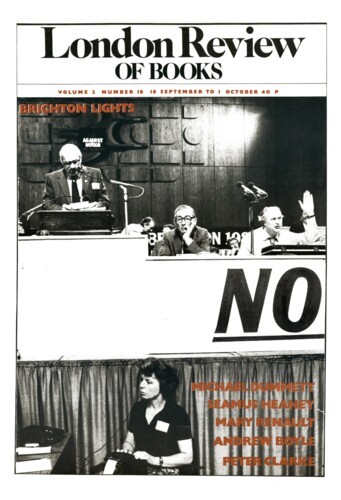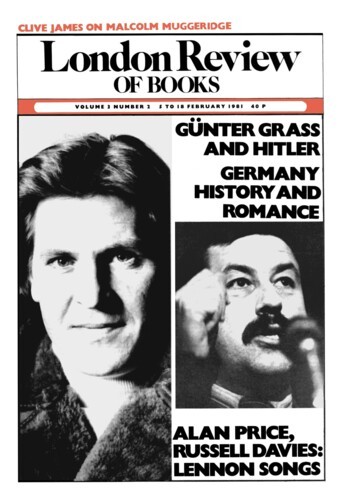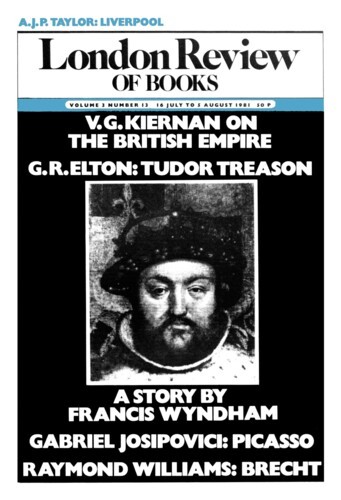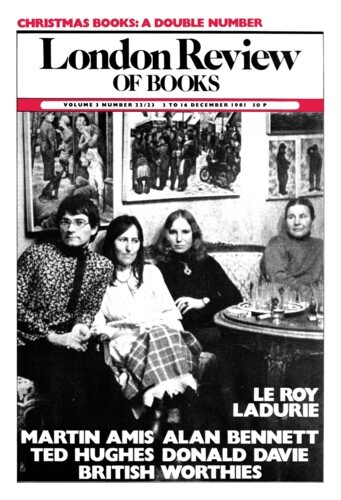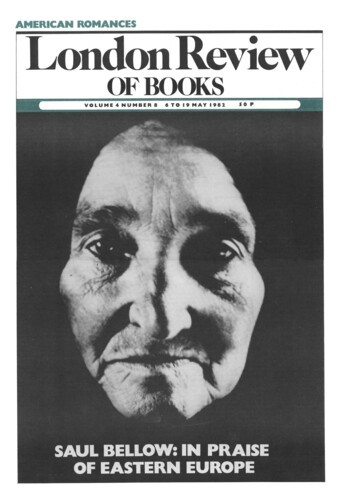Lawrence Festival
Dan Jacobson, 18 September 1980
One of the functions that took place during the recent D. H. Lawrence Festival in Santa Fe was a procession to the shrine on the Lawrence ranch, outside Taos. A few hundred people must have taken part in the ceremony. After listening to a string quartet play Schubert everyone formed up in a line. A drum was beaten somewhere ahead, girls in white robes scattered flowers, and we all went zig-zagging up a path to the little concrete structure in which Lawrence’s ashes are reputedly incorporated. In front of it is the tombstone of Frieda Lawrence, and of her third husband, Angelo Ravagli; above it is the phoenix symbol, in stone or cement, which Lawrence had adopted as his own.
